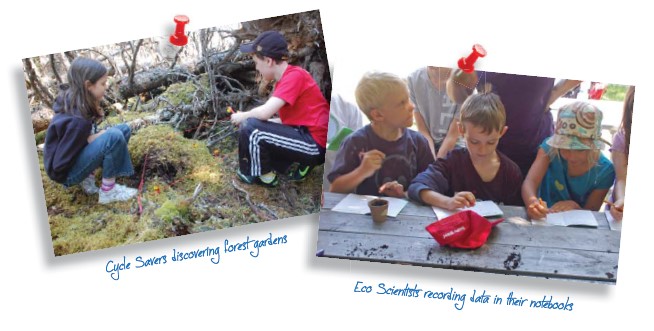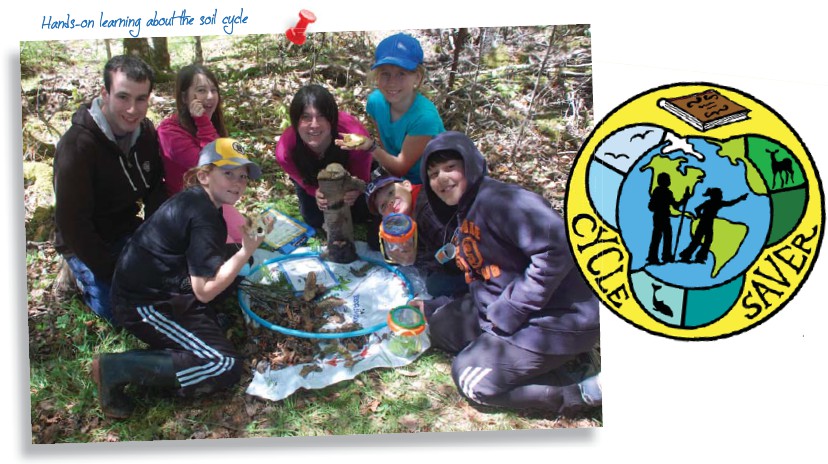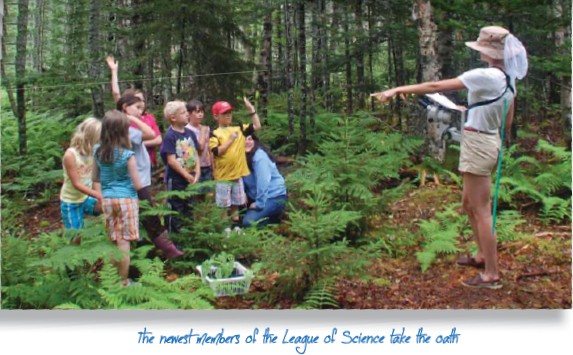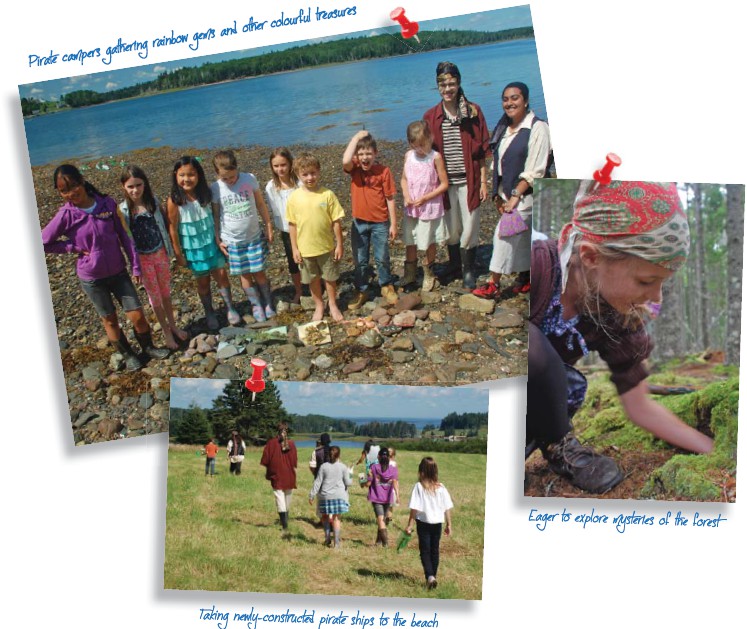Morton Centre Programs
Morton Centre Today The Back Story Programs Contact
Acadia University received funding from Michelin North America (Canada) Inc. to provide environmental education programs at the Morton Centre, and support the running of field station and retreat activities on Heckman’s Island, Lunenburg County, NS. In an effort to build its capacity in educational program delivery, Acadia partnered with a local environmental organization, the Bluenose Coastal Action Foundation (BCAF). These programs are a result of that partnership.
Program management and administration is overseen by BCAF Executive Director, Brooke Nodding. Design and development of the programs has been carried out by Cate de Vreede, a local environmental education consultant. Further development, implementation, and facilitation of the programs are the tasks of the on-site program coordinators. Local high school students are trained as volunteer program leaders for some of the programs.
The Morton Centre environmental education initiative offer environmentally-themed programs to engage and educate local children and youth. The programs that have been delivered include Cycle Savers, Eco Scientists, Pirates’ Cove, and TIME: A High School Environmental Leadership Program. All of the programs take place outdoors and are designed to provide participants with opportunities to enjoy experiential learning, science, discovery, and being active in nature. Each day included games, stories, creative projects, exploration and physical activity, as well as hands-on learning related to the theme of the camp.

Cycle Savers

Cycle Savers is an intriguing, hands-on, earth education program for grade 4 students based on a mystery code and club theme. Students deciphered the lost manual of the Cycle Savers Club, which launched them on an intriguing adventure to appreciate, understand, and respect the cycles of life through an action-packed field trip at the Morton Centre. They returned home to complete the final code and discover how their household is affecting the environment and what they can do to make a difference. The program addresses grade 4 science curriculum outcomes.
Incorporated into this program is a leadership component for high school students. These youth received two days
of leadership training, and led the program as a team of five, supervised by the on-site program coordinators.
Eco Scientists

Eco Scienti sts is a week-long half-day summer day camp for children ages 7-12. Campers use the scientific method and all their senses to explore the natural world, and to consider how humans impact the earth. Following completion of a variety of experiments and recording the results in their field books, the apprentices ceremoniously became members of the “League of Science”. Participants were encouraged to consider how to use their new science skills to continue exploring and caring for the world around them.
Pirates' Cove
Pirates’ Cove is a week-long half-day summer day camp for children ages 7-12. They explore the coastline using mysterious maps, discovered natural treasures, and found out what it takes to be a modern-day, earth-friendly pirate! Using the pirate code, they deciphered the 4 Rs (reduce, reuse, recycle, and rethink) and solved various challenges along the shore and in the forest. By the end of the week, the pirates-in-training had sufficiently impressed the Captain and were welcomed as crewmates on the good ship Narwhal.

TIME: A High School Environmental Leadership Program
Last fall, we piloted an environmental leadership program for high school students called TIME (Teens Inspiring Meaningful Engagement). It was an overnight program, taking place in November at the Morton Centre with a small, but enthusiastic group of students. In this program, youth explored the meaning of leadership in the context of our environment. The activities were experiential in nature, with many taking place outdoors, and the youth had many chances to practise their leadership skills. The weekend was designed, facilitated and evaluated by two Acadia students (including one of this past summer’s program coordinators) as a course project.
